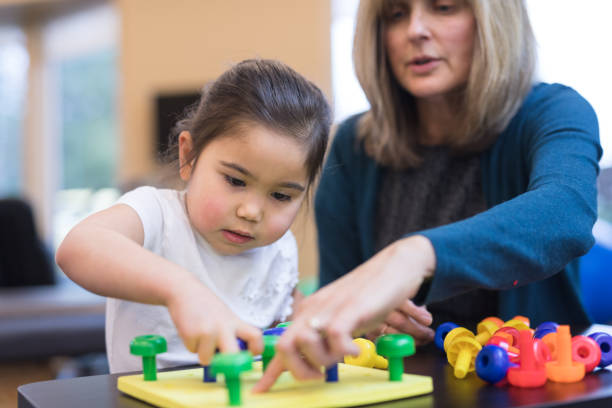WHAT IS PLAY THERAPY? -
Play therapy is a form of therapy used primarily for children. A trained therapist can use playtime to observe and gain insights into a child’s problems. The therapist can then help the child explore emotions and deal with unresolved trauma. Through play, children can learn how to behave. Play therapy can be effective in helping children through emotional and mental issues. Children often use play to express themselves. Play therapy can also be used with adults. It is typically used with children who are aged between 3 and 12. The primary goal of play therapy is to help children who might struggle with expressing themselves or their emotions to express themselves through play.
Play therapists use play activities a child might enjoy from painting to dancing to board games. At times play therapist will ask other family members or parents and guardians to also get involved in the playtime activities. It is based on the idea that children communicate unconsciously through play. This means they reveal things about themselves without realizing. It is through play that children learn how to interact with others and develop skills. Playing together provides a safe environment. This can be especially useful for children, who may feel distrustful of strangers. Sessions usually last 30–45 minutes. Play therapy differs from regular play. Through play therapy, children learn to express feelings, modify behavior, develop problem-solving skills.

PLAY THERAPY IS USED FOR -
- Experienced physical or emotional trauma
- Witnessed conflict or have been bullied
- Been severely punished by someone
- Witnessed armed conflicts or natural calamities
- Been displaying behavior or conduct issues
- Experienced significant life changes (loss of parents, parents’ divorce or separation from family)
- Had trouble reaching developmental milestones
- Issues with anxiety or sadness
- Trouble coping with their immediate environment
- learning disabilities
- problem behaviors in school
- aggressive behavior
- ADHD
- Autism
BENEFITS OF PLAY THERAPY -
- Learn basic or advanced motor skills
- Learn decision-making and problem-solving skills
- Learn social skills
- Release excess energy
- Understand their emotions and their problems
- Gain more confidence through self-expression
- Enhance their imagination and creativity
- taking more responsibility for certain behaviors
- developing coping strategies
- self-respect
- empathy and respect for others
- learning express feelings
- stronger social skills
- stronger family relationships
PLAY THERAPY TECHNIQUES -
- creative visualization
- storytelling
- role-playing
- toy phones
- puppets, stuffed animals, and masks
- dolls, action figures
- arts and crafts
- water and sand play
- blocks and construction toys
- Board games
- Tea party play
- Card games
- Strategy games like chess or checkers
- Hide-and-seek
- LEGO play
- dance and creative movement
- musical play